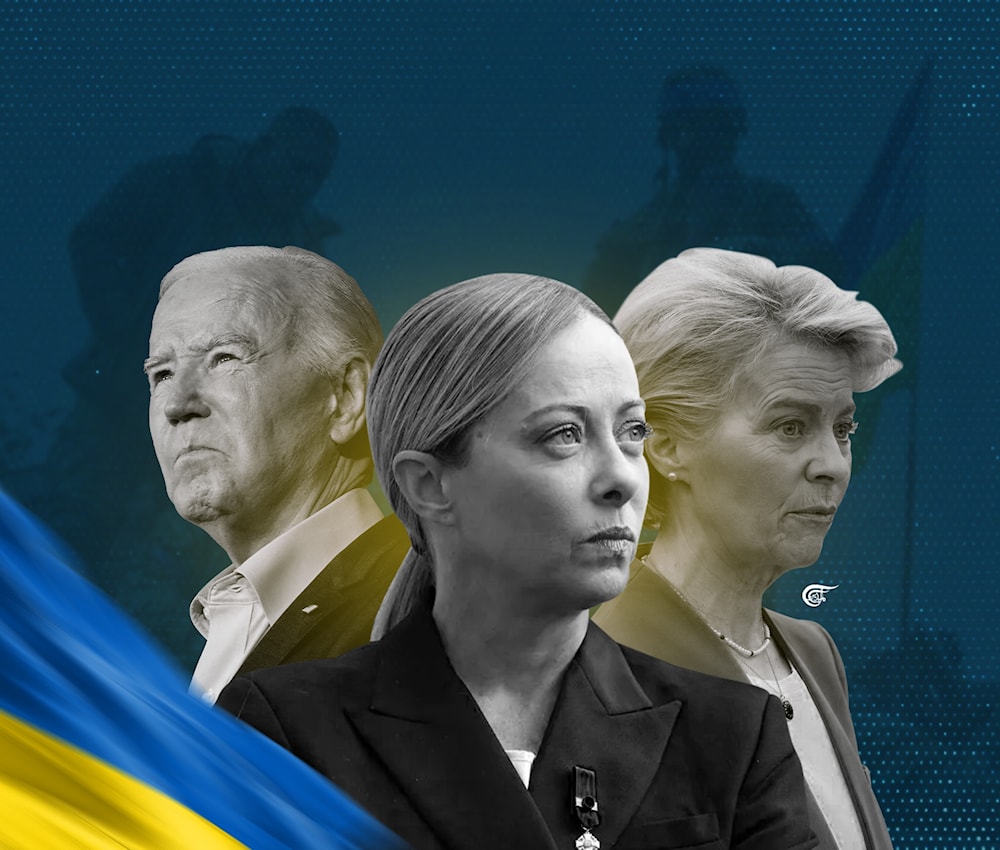Issues such as immigration, falling living standards, and anger at the Green Agenda played a big part in the election ‘mutiny’, but the Ukraine war is central (though its centrality is never explicitly admitted).
The dismay, confusion, and shock emanate from Europe as first the UK, then the French Establishments fall, and the German too is humiliated. What we are experiencing is the ‘noise’ from the outer defensive lines of the European Establishment folding, whilst — for now — the Centre stands defiant and unyielding.
Apart from the political mayhem that the Euro-elections wreaked across Europe, the key point is that Brussels’ first ‘defensive fortification lines’ were breached.
This defensive ‘line’ (known colloquially as the ‘Cordon Sanitare’) represents the understanding that the political Right — invariably denigrated as the ‘Far Right’ — must be ‘walled off’ from mainstream politics. It has been a forbidden act to allow any coalition, or partnership, to cohabit with non-Centrist parties of the Right. All contrarian parties were to be ostracised.
In Italy, the Cordon ‘trenches and tank traps’ were already being breached by Georgia Meloni. In France, Le Pen’s Rassemblement National drove a tank across the Cordon lines. And the AfD and Sara Wagenkecht’s party punched another hole, too, in Germany.
However, ‘the Centre’ — a bloc of Left-Centrist Brussels-linked MEPs — may still (just) have the majority in the European parliament. Their narrative is that the ‘Centre has held’. Translated: they are saying, ‘no compromise’; we’re still on top.
Brussels will try to ignore these recent events — ‘nothing changes’; but a ‘window has opened’ nonetheless in Brussels, and fresh air is pouring in upon the fusty habitual fug.
Coalitions across a wider political spectrum will happen. New parliamentary ‘blocs’ are already emerging, and settled institutional EU politics will be challenged.
It will be a long incremental struggle — albeit one that is not strategic, but peripheral.
Yet … and yet, make no mistake, this is just an initial skirmish. The main stronghold — the matrix of interlocking, invitation-only policy-storming clubs, the fiefdoms of muscular power, and the co-ordination of financial firepower that together comprises the Ruling Strata — is intact.
The big battle will be fought, not in Europe, but in the US.
Of course, issues such as immigration, falling living standards, and anger at the Green Agenda played a big part in the election ‘mutiny’, but the Ukraine war is central (though its centrality is never explicitly admitted).
Consider the aim of the recent G7 in Puglia: First, was to showcase Biden as the unquestioned leader of the West, corralling European vassals to Ukraine’s side, and boosting his global image ahead of the November election.
Secondly, the security pact with Ukraine, the seizing of Russian assets, and the $50bn loan initiative, were again centred on optics: Team Biden was hoping to draw a stark contrast with his Republican opponent — manifesting constancy in US support for the Ukraine ally; the marking of Biden as a ‘transatlantic champion’; the gathering together of an international coalition under US leadership to face-down Russia — all done to cast Trump as the ‘unreliable ally’ in foreign policy. (However, polls in the US say that Biden is viewed as ‘weak on foreign policy’).
There was little else of substance to the G7 — just a few celebrity walk-ons.
What does this tell us? It asserts that Ukraine is seen by the Ruling Strata (both the US variety, as well as to its European branches), to be pivotal to its future.
Team Biden and the G7 protégés are fighting for the Empire. They firmly believe that Russia must disintegrate (one way or another), lest Russia prevail and the Empire quickly melt away.
On the Ukraine conflict hangs the entire Mackinder paradigm.
President Putin at the Foreign Ministry Board meeting this week detailed the recent history of the Western intervention in Ukraine (including previously undisclosed events). And he set out very clearly the Russian end-game for Ukraine.
However, the essence of the Ukraine problem lies in the absence (beyond Ukraine) of security for Russia and the Asian heartland, vis-à-vis the Atlanticist ‘forever expansion’.
Can the US even contemplate such a Mackinder-type negotiation (that should have taken place after the Berlin Wall fall)? Difficult. Might nonetheless the US take up the opportunity for a more limited negotiation with Moscow on the basis of Putin’s Foreign Ministry speech?
When such a possibility was asked of Foreign Minister Lavrov, he retorted simply: “Hope dies last”.
And so, to end on the Israeli-Palestinian conflict. It seems destined to endure.
“Israel” or the White House: Who controls whom?
Neither — fully. They are, however, integrated in a common Ruling Strata. “Israel” essentially IS America, and America essentially IS “Israel”. A US ‘win’ over Russia would weaken the forces ranged against “Israel”, but a strategic loss for the West in Ukraine? Well …
